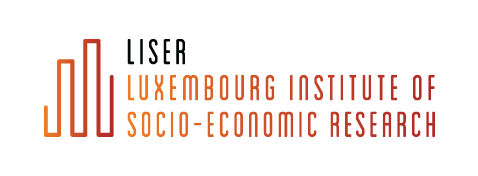Extreme temperatures have become more frequent over recent decades, with the trend expected to continue into the future. Prior evidence has shown that extreme temperatures alter the way in which individuals allocate their time between leisure and work, which can have important implications for the labor market and well-being. A much less explored phenomenon is whether extreme temperatures have an effect on how individuals arrange their time within the leisure and work dimensions. In the leisure domain, it is important to understand the effect of temperature on social interactions, as these are an important determinant of employment and well-being. In the work domain, it is important to understand the effect of temperature on worktime arrangements, as these can influence productivity and career advancement.
This project is divided into three work packages (WPs), and provides evidence on the causal impacts of extreme temperatures on (i) social interactions and (ii) worktime arrangements, as well as (iii) whether these effects have long-term implications for well-being.
WP1 examines the causal impact of extreme temperatures on social interactions, by studying whether extreme temperatures alter the amount of time individuals spend alone, and with family and friends. The analysis relies on daily individual data from the American Time Use survey (ATUS) linked with county-daily data on U.S. weather conditions obtained from the National Oceanic and Atmospheric Administration (NOAA), which acts as the source of identification. In WP1, we also offer an explanation of possible temperature effects on joint time use, using a theoretical model that provides testable implications, which we investigate using ATUS data. WP2 examines the causal effect of extreme temperatures on individuals’ worktime organization across three main dimensions: (i) place of work, (ii) work schedules, and (iii) number and length of breaks taken during work. The analysis, which explores heterogeneity by industry and level of education, is based on a sample of individuals who work on the time diary completion date taken from ATUS data, which we combine with variation in temperature on the time diary completion date and month prior to it, at the U.S. county level. WP3 provides novel evidence on the short, medium, and long-term causal effects of extreme temperatures on flexible types of employment, life satisfaction and mental health. The analysis uses two large panel datasets from the U.S. Panel Study of Income Dynamics and the German Socio-Economic Panel surveys that follow individuals on an annual basis over a 30-year period. We combine these two panels with data from the NOAA and German Weather Service on yearly temperature distributions across U.S and German counties, respectively. Estimating the analysis separately for each of these countries allows to study whether the dynamic effects of extreme temperatures on type of employment and well-being differ between the U.S. and European contexts.
The scientific contribution of the project is to provide novel evidence on the causal effects of extreme temperatures on social interactions and worktime organization as well as on their dynamic implications for type of employment and wellbeing. This will contribute to the design of more efficient public policies addressing the potential detrimental effects of extreme temperatures on the examined outcomes, thus leading to better functioning labor markets and increased welfare.
The results of the project may also assist policy-makers by providing insights for future discussions on climate change using a perspective that has not previously been explored. The contributions of the project are relevant for any advanced economy, given that global warming is an international phenomenon.

